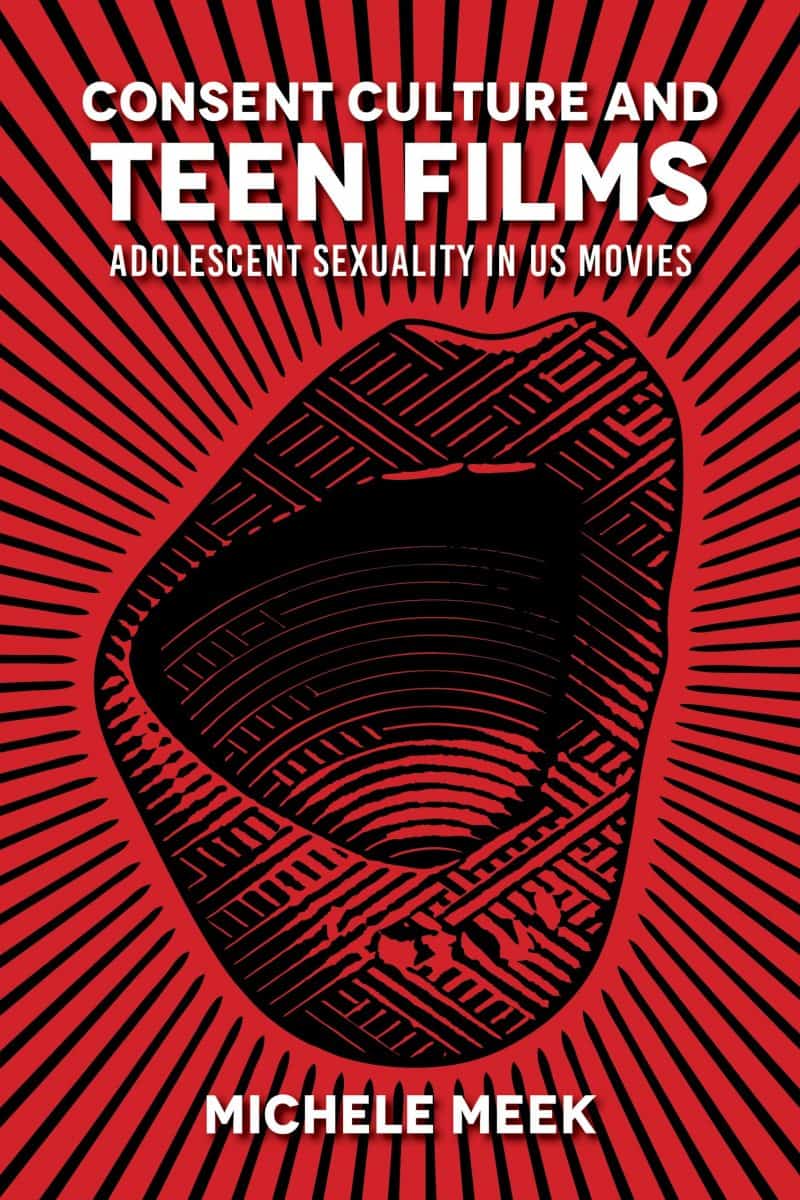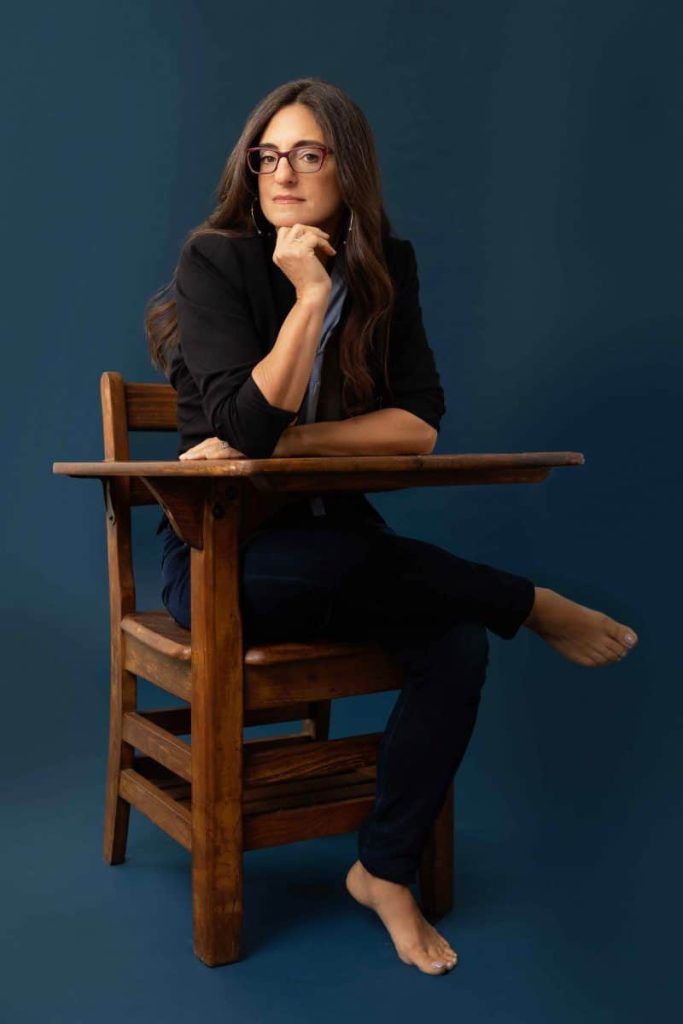Photo: Stephanie Alvarez Ewens
by Rebecca M. Alvin
If you grew up in the United States in the 1980s, you undoubtedly remember John Hughes films like Sixteen Candles, Pretty in Pink, and The Breakfast Club. In fact, you likely watched his films as well as other teen comedies such as Fast Time at Ridgemont High directed by Amy Heckerling, over and over again, memorizing lines and allowing the characters and stories to sink into your very core. But if you’ve ever re-watched these films in the past 10 or 20 years, as an adult, you’ve also likely noticed some things that didn’t phase you at all at the time but which jump out as seriously problematic now. There are many obvious examples that include racial stereotypes, gender stereotypes, and homophobia, but also there is the troubling lack of boundaries around sexual consent that seemed to fly past all of us in that era. And just as the MeToo movement has caused many Generation X women to circle back to behaviors they routinely experienced in their youth but brushed off as just our reality, when we watch the high school hunk Jake offer The Geek (Anthony Michael Hall) his girlfriend, who is passed out drunk, as a gift from the cool senior to the freshman in Sixteen Candles, there’s an unsettling moment and it seems less funny than it did in 1984.

Filmmaker, author, and scholar Michele Meek became interested in the ways in which film and television depict consent when she was a Ph.D. student at the University of Rhode Island. Her dissertation was on a term she coined, “consent puzzles,” those problematic areas around consent that have become more commonly discussed. This change in “consent culture” that has emerged is, she says, reflected wonderfully in the cinematic subgenre of the teen sex comedy, and now, she has written a book specifically about those changes, Consent Culture and Teen Films: Adolescent Sexuality in U.S. Movies.
“So, I started working many years ago on the idea of puzzling consent moments— moments where we might read or watch something and have a lot of ambivalence about how we felt about it, whether it was consensual or not, or some ambiguous areas in between,” she explains.
Meek’s book is centered on American film, but it looks at the idea of consent from multiple angles, deeply delving into the core issue, which is how do we even define consent? A Saturday Night Live sketch in 1991 mocked the then-recent adopting of consent policies at Antioch College that required a verbal “yes” at every level of human sexual interaction—something that runs contrary to the complexities of communication between individuals in real-life sexual situations. But the Antioch policy came in response to a disregard for consent back in the time before we start talking collectively about “date rape” as actual rape.
“One of the main things that I would like readers to take away from the book is that despite the fact that we often insist on this clear boundary between consent and non-consent, you know, yes means yes and no means no, we all know from personal experience that it can be more ambiguous than that. And one of the things that I find so interesting about movies and television is that they can expose that,” Meek says. “Because they are getting into the details of an intimate moment, we’re seeing what those cultural scripts are and how they change over time. And it’s pretty evident when you watch teen movies from decades ago versus teen movies today, for instance, how much more explicit consent is in the scene now than it was years ago. So there’s been a clear shift in verbalizing consent.”
Unlike the Antioch policy, Meek says if the goal is to eradicate sexual violence then movies serve a vital purpose in demonstrating how prioritizing verbal consent above all other factors diminishes the development of emotional intelligence to understand what another person is feeling and thinking. “We can’t just talk about what someone says or does in the moment. We have to think also about how they think and feel in the moment, because it’s possible to either be silent or to say yes and not mean yes, and still feel violated afterwards. That’s troubling, I know, and makes it a lot more complicated in thinking through how we might eradicate sexual assault and violence, but it is a truth that we need to contend with if we want to get at the heart of some of these issues.”
There are many examples Meek includes in this thoughtful compendium of U.S. teen films over the years that demonstrate this complexity beyond what is commonly articulated in the public sphere through legal policies and case law and news journalism. She gives as an example Greta Gerwig’s film Ladybird, in which the title character pursues her love interest, Kyle, and actively participates in a sexual encounter with him that is certainly consensual, but centers on a lie. While Ladybird believes both she and Kyle are losing their virginity at that moment, she later learns that Kyle was not a virgin and had played along in order to have sex with her.
“That’s the brilliance of movies and television, and that’s why I love looking at this issue through movies and television so much because you’ll have a situation like Ladybird where… even though she initiates the sexual encounter and drives it, she still feels violated and tricked by it. And so that really gets at the nuances of you know, she consented but she still doesn’t feel great about it afterwards, you know, and then she’s not sure what to do with that information,” says Meek.
Meek will discuss the issues raised in the book at a reading/conversation at WomenCrafts this Saturday, including the interesting and often less-discussed depictions of queer sexuality in teen films. The book offers insights on this aspect of the portrayals of consent in teen films that are provocative. For example, the trope of the gay teen who “tries out” heterosexuality, just to be sure. Here we often see sex scenes where both parties are clearly consenting to have sex with each other, but for at least one of the parties, desire is absent, leading to the questions: can consent come without desire and does consent necessarily prevent uncomfortable, non-pleasurable experiences that one or both parties may ultimately regret?
Consent and pleasure are not necessarily the same thing. Meek cites as an example the 2018 film Alex Strangelove about a young man coming to terms with his homosexuality. “He’s kind of grappling with his queer desire, but he also loves his girlfriend, and they decide to have intercourse for the first time together. And it’s clear that he doesn’t have the desire, even though he consents and she consents without knowing that he doesn’t have that desire for her,” explains Meek. “Again, the movie is kind of showing us just how messy a situation like that can be where, you know, we’re not necessarily thinking that anyone was exactly assaulted, but it also is a very disturbing and unpleasant kind of interaction for both of them.”
Meek is not afraid to go to these complex areas, because her inspiration is in the ability of film to transcend simplistic verbal exchanges and talk about things non-verbally that we have trouble articulating in real life and yet deeply relate to on the screen. The assumptions of heterosexual boys as always-willing sex partners is just as reductive about male psychology as the old idea of girls as the gatekeepers, responsible for keeping everyone moral and chaste. And yet, while girls no longer are expected to behave as such on the screen in American teen films, a boy’s consent is often still marked irrelevant by this persistent idea.
“If we’re going to prioritize consent as a culture, we need to do it across the board and we need to think about the nuances of different situations for different identities and individuals. And I think there’s been a trend in movies more recently that I find troubling because what it does is simply flips the script of the kind of aggressive boy story and just turns the girl aggressive…rather than it becoming a story of mutual exploration,” Meek says.
And yet, she also says, she still finds pleasure in teen films of her youth, as many of us do, because a work of art can be both problematic and wonderful at the same time; the emotional resonance does not follow ethical guidelines and the cinema is a universally understood language that will always have intrinsic value.

“I am a huge fan of sex comedies. And so many of the sex comedies still make me kind of uncomfortable. So you know, films like Fast Times at Ridgemont High, Superbad, American Pie, even The To-Do List, I just I really love watching movies like that. And yet I also kind of can’t help but notice that they have issues,” she admits. “But I also know how hard it is to write a story, shape a story, and make a movie, and so I have a tremendous respect for filmmakers, too, because I’m a filmmaker myself. And so I really just enjoy that fun and rollicking sense of a good sex comedy even while I’m thinking like, ‘well, that’s not appropriate,’” she adds with a laugh.
Michele Meek will discuss her book Consent Culture and Teen Films, on Saturday, September 9, 5 p.m. at WomenCrafts, 376 Commercial St., Provincetown. The book is available at WomenCrafts and wherever books are sold. For more information about the book and Meek’s work, visit michelemeek.com. For information on the upcoming event call WomenCrafts at 508.487.2501.











